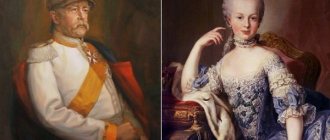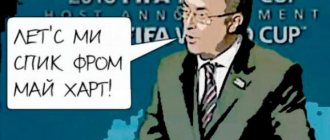“The end justifies the means” - Niccolo Machiavelli
In his treatise “The Prince,” Machiavelli actually expressed a very similar thought, but he never uttered this particular phrase. The theologian Herman Busenbaum wrote: “Whoever is allowed the goal, the means are also permitted,” but, apparently, the original expression was simply invented by the people.
“If there is no bread, let them eat cake” - Marie Antoinette
Marie Antoinette never said this, but the phrase is quite real. It appears in Jean-Jacques Rousseau's 1769 Confessions. He attributed this expression to a German princess, but Marie Antoinette herself still lived in Austria and was 14 years old.
“Don’t spare the soldiers! Women are still giving birth!” — Georgy Zhukov
The phrase is attributed to many military leaders: if Zhukov didn’t say this, then Kutuzov or Peter I probably did. This is wrong, none of them said anything like this, but in the personal correspondence of Nicholas II and his wife Alexandra you can find something similar. In a message dated August 17, 1916, the emperor writes: “The generals know that we still have many soldiers in Russia, and therefore they do not spare lives, but these were superbly trained troops, and everything was in vain.”
“Any cook can rule the state” - Vladimir Lenin
Vladimir Lenin never said anything like this and could not say anything like that. On the contrary, in his article “Will the Bolsheviks retain state power?” he expressed an absolutely opposite point of view: the same cook must first be trained before giving her the reins of government.
“There are no irreplaceable people” - Joseph Stalin
This statement is often attributed to Stalin, but if you delve into his memoirs and recordings of speeches, it becomes clear that the leader did not say such a thing. The only clue is in the report of the 17th Party Congress on the work of the Central Committee of the All-Union Communist Party of Bolsheviks on January 26, 1934, but there is no complete coincidence there either.
Catchphrases in comedies
Comic effects create catchphrases from comedies. Griboyedov’s work is especially saturated with them, where the title “Woe from Wit” already sets the whole tone. It remains relevant to this day, when many minds cannot break through the mass of misunderstanding, and new ideas are considered completely unnecessary and dangerous for society. For some comedy heroes, an alternative to intelligence is iron discipline (“Learning won’t make me faint” - Skalozub), for others it simply brings harm (“Learning is a plague...” - Famusov). In this comedy it is not known whether to laugh or cry?
“If there is no God, then everything is permitted” - Fyodor Dostoevsky
This aphorism was attributed to Dostoevsky by Jean-Paul Sartre in his lecture. However, only a partially similar phrase is found in the novel “Demons” on behalf of the captain: “If there is no God, then what kind of captain am I after that?” And then the answer of another hero, Kirillov: “If there is no God, then I am God.”
“God helps those who help themselves” - Bible
Almost the whole world is sure that this is a direct and verbatim quotation from the Bible. In America, they even conducted a sociological study: according to a 2001 survey, almost 80% of residents called this phrase an excerpt from a sacred text. But those who have actually read the Bible know that there are no such words there. But a similar idea is found in ancient authors - in Euripides’ “Hippolytus”, in Ovid’s “Metamorphoses” and in Aesop. Also, Algernon Sidney in his book “Discourses on Government” has an inaccurate, but very similar expression: “God helps those who take care of themselves.”









